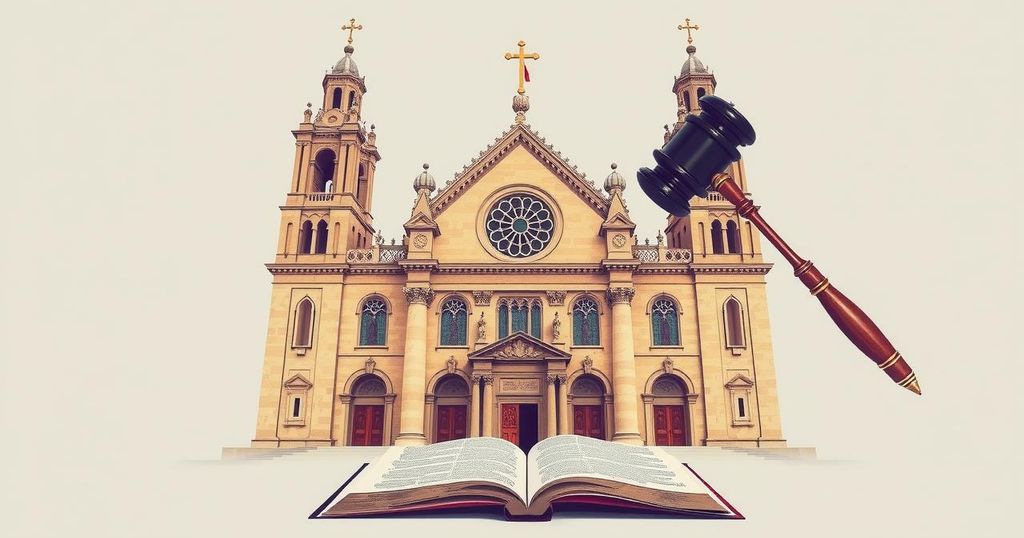The Catholic Church in Benin marked the 35th anniversary of the 1990 National Conference, highlighting concerns over democracy and the Church’s political influence. Participants expressed mixed feelings about the state of democracy, noting a decline in the Church’s authority, which was once respected in political engagements. The shift in respect for ecclesiastical influence is attributed to changes in leadership style and a lack of values among current politicians.
The Catholic Church in Benin recently commemorated the 35th anniversary of the National Conference of 1990, an event crucial to the country’s shift from dictatorship to democracy. Nevertheless, numerous voices expressed disappointment regarding the current state of democracy and the Church’s political relevance. Archbishop Isidore de Souza, a key figure in this transition, is still seen by many as the architect of Beninese democracy.
In recognition of the conference’s significance, the Benin Episcopal Conference marked February 28 as the “National Day of National Recovery and Political Leaders.” Bishop Roger Houngbédji emphasized the importance of honoring the conference’s legacy and fostering a commitment to human dignity and true values within society. Commemorative activities included a solemn Mass and a colloquium dedicated to national development aligned with the Church’s mission.
During the colloquium, participants assessed the trajectory of democracy in Benin. Alain Adihou, who represented Catholic youth during the conference, shared his mixed feelings about progress made since then, noting that the elite has often exploited the people’s triumph over dictatorship. He stressed that the government’s failure to properly implement democratic principles has perpetuated systemic issues.
Robert Dossou, another pivotal figure from the conference, voiced disappointment with the current political landscape, suggesting that democracy in Benin has devolved into a “multi-polar one-party system” where dissent is suppressed. Critics have pointed out that the country, once heralded as a democratic model in Africa, has seen a reduction in political freedoms, alongside increased media control and the marginalization of opposition figures.
The diminishing political influence of the Church was discussed among participants, many of whom noted that previously, bishops were highly regarded within the political sphere. Jacques Tossavi remarked on the current lack of attention given to the Church by government leaders, reflecting on the respect afforded to Bishop de Souza during his time.
The decline in respect for ecclesiastical authority has been attributed to changes in leadership style since the era of President Mathieu Kérékou. Adihou highlighted Kérékou’s humility and God-fearing disposition as factors that facilitated the Church’s influence at that time. Current leaders lack similar values, diminishing the Church’s authority in socio-political discourse.
Concerns over the Church’s political engagement have been echoed in recent consultations for the Synod on Synodality. A national synthesis published in August 2022 indicated that many suggested enhancing the Church’s socio-political involvement, as its recommendations have largely been overlooked by contemporary political authorities.
The Catholic Church in Benin faces significant challenges regarding its political influence and the state of democracy in the country. As the anniversary of a pivotal democratic transition is observed, reflections from participants reveal a sense of disillusionment with current democratic practices and a call for renewed engagement. The diminishing authority of the Church in political matters raises questions about future advancements and the respect for fundamental human values in Beninese society.
Original Source: international.la-croix.com




